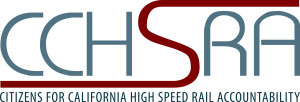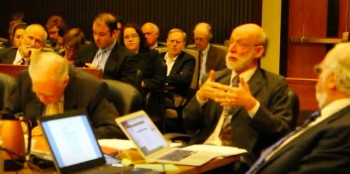New Business Plan for California High-Speed Rail Slices Through San Joaquin Valley at Much Higher Cost to Taxpayers
On March 9, the California High-Speed Rail Authority released its Draft 2018 Business Plan and asked for public comments about it.
According to the new business plan, the cost of Phase 1 construction between San Francisco and Los Angeles/Anaheim is now estimated at $77.3 billion. The route is expected to be completed in 2033.
Read the plan: California High-Speed Rail Authority Draft 2018 Business Plan and consider commenting about it using this web site: Draft 2018 Business Plan Comments.
How has the plan changed in ten years?
One dramatic change is cost and scope. Proposition 1A authorized the state to borrow $9.95 billion to get the project going. Information about Proposition 1A in the November 2008 Official Voter Information Guide stated that “the total cost to develop and construct the entire high-speed train system would be about $45 billion.”
This $45 billion “entire high-speed trail system” included service to Sacramento and San Diego as well as the route between San Francisco and Los Angeles. It also assumed dedicated track for the entire system, as opposed to the current “blended” plan in which high-speed trains share track with commuter light rail at the “bookends” near San Francisco and Los Angeles.
See the text of Proposition 1A and the ballot material related to it: Prop 1A: Safe, Reliable High-Speed Passenger Train Bond Act.
In 2008, supporters of Proposition 1A declared in their official ballot argument to voters that “signers of the ballot argument against Proposition 1A are habitual opponents of transportation improvements. Their claims are wrong and their data simply made up.”
Ten years later, it is proven that opponents of Proposition 1A were indeed wrong. They underestimated how bad it was going to be!
Meanwhile, the groups making money off of California High-Speed Rail continue to push for the project to continue. The State Building and Construction Trades Council of California, a coalition of unions with a monopoly on the construction workforce for the project, issued a statement on March 9 supporting the 2018 Business Plan: SBCTC Statement on California’s New High Speed Rail Plan.
With politically powerful unions continuing to support this project, the spending will continue until the courts finally stop it. Citizens for California High Speed Rail Accountability (CCHSRA) and other organizations will continue to argue to the judicial branch that the state’s legislative and executive branches have failed to uphold the promises made to voters in Proposition 1A.
In the meantime, the property takings and cultural erosion of agricultural communities far away from San Francisco and Los Angeles will continue at the hands of the California High-Speed Rail Authority. Join Citizens for California High Speed Rail Accountability (CCHSRA) in the campaign to stop this misguided plan targeted at the San Joaquin Valley. Make a contribution to our fight here.



